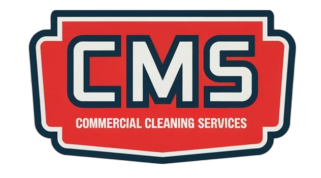A flooded basement is more than just an inconvenience; it can lead to structural damage, health risks, and costly repairs if not addressed promptly. From burst pipes to heavy rainstorms, there are numerous causes for basement flooding. However, the solution lies in professional flooded basement cleanup services.
Acting quickly ensures that your property, belongings, and health are protected. This article explores the importance of flooded basement cleanup, the process involved, and how to prevent future flooding.
Why Flooded Basement Cleanup Is Crucial
Basements are particularly vulnerable to flooding because they are located below ground level. When water enters, it can accumulate quickly and seep into walls, floors, and foundations. Without immediate cleanup, the damage can escalate, leading to:
- Structural Weakening: Water compromises the strength of foundations, walls, and floors, risking long-term structural issues.
- Mold Growth: Mold can begin forming within 24-48 hours in moist environments, creating health risks.
- Health Hazards: Standing water can harbor bacteria, pests, and contaminants, making your home unsafe.
- Property Loss: Furniture, carpets, and personal belongings stored in basements can be damaged beyond repair.
Common Causes of Basement Flooding
Understanding the causes of basement flooding can help you act quickly and effectively. Here are some of the most frequent culprits:
- Heavy Rainfall: Intense storms can overwhelm drainage systems, causing water to seep into basements.
- Poor Drainage Systems: Ineffective gutters or clogged drains can direct water toward your home’s foundation.
- Burst Pipes: Frozen or aged pipes are prone to bursting, releasing significant amounts of water.
- Sump Pump Failure: If your sump pump malfunctions during heavy rains, water can accumulate rapidly.
- Sewage Backups: Blocked or overloaded sewer lines can force contaminated water into your basement.
- Groundwater Seepage: Cracks in walls or foundations allow groundwater to infiltrate basements.
Steps Involved in Professional Flooded Basement Cleanup
Professional flooded basement cleanup is a multi-step process designed to remove water, dry out the area, and restore your space. Here’s what you can expect:
1. Emergency Response
Reputable cleanup companies provide 24/7 emergency services to mitigate damage as quickly as possible.
2. Water Extraction
Technicians use industrial-grade pumps and vacuums to remove standing water from the basement. This step is critical to halt the progression of damage.
3. Damage Assessment
A thorough inspection is conducted to assess the extent of damage, including structural issues, mold risk, and damage to belongings.
4. Moisture Detection
Hidden moisture can linger in walls, floors, and ceilings. Experts use moisture meters and thermal imaging to locate and address these areas.
5. Drying and Dehumidifying
High-powered air movers and dehumidifiers are deployed to completely dry the basement and prevent mold growth.
6. Cleaning and Disinfection
If the flooding involves sewage or contaminated water, professionals disinfect the area to eliminate bacteria, viruses, and unpleasant odors.
7. Restoration
The final step involves restoring the basement to its pre-flood condition. This may include repairing drywall, replacing flooring, or repainting walls.
DIY vs. Professional Flooded Basement Cleanup
While some homeowners attempt DIY flooded basement cleanup, there are significant risks involved. Here’s a comparison:
| Aspect | DIY Cleanup | Professional Cleanup |
|---|---|---|
| Equipment | Basic tools like mops and fans | Industrial-grade pumps and dehumidifiers |
| Time Efficiency | Can take days | Completed within hours or days |
| Mold Prevention | Limited ability to dry thoroughly | Complete drying with mold inhibitors |
| Health Risks | Exposure to bacteria and contaminants | Safe handling of hazardous materials |
| Cost Efficiency | Low initial cost, high repair costs later | Upfront cost, lower long-term expenses |
Professionals not only remove water but also ensure your basement is completely safe, dry, and restored.
How to Choose the Right Flooded Basement Cleanup Service
Selecting the right company ensures a hassle-free cleanup process. Here’s what to look for:
- Emergency Availability: Flooding doesn’t wait, and neither should your cleanup service. Choose a company that operates 24/7.
- Certified Technicians: Ensure the team is certified by the IICRC (Institute of Inspection Cleaning and Restoration Certification).
- Comprehensive Services: Opt for a provider that handles water removal, drying, cleaning, and restoration.
- Positive Reviews: Read customer testimonials to gauge reliability and quality.
- Insurance Assistance: A good company will assist with documenting damage and filing insurance claims.
Preventing Basement Flooding in the Future
While professional cleanup is invaluable, prevention is even better. Follow these tips to reduce the risk of future basement flooding:
- Install a Sump Pump: A reliable sump pump with a battery backup can prevent water accumulation during heavy rains.
- Maintain Gutters and Downspouts: Regularly clean gutters and ensure downspouts direct water away from your foundation.
- Seal Cracks: Inspect your foundation and walls for cracks and seal them with waterproof materials.
- Improve Grading: Ensure the ground around your home slopes away to prevent water pooling near your foundation.
- Install a Backwater Valve: Prevent sewage backups by installing a backwater valve in your plumbing system.
- Regular Inspections: Periodically inspect your basement and plumbing systems for signs of leaks or wear.
FAQs
What is involved in flooded basement cleanup?
Flooded basement cleanup involves water removal, drying, cleaning, disinfection, and restoration to prevent damage and mold growth.
How soon should I start flooded basement cleanup?
Cleanup should begin immediately to minimize damage, prevent mold, and salvage belongings.
Can I handle flooded basement cleanup myself?
DIY cleanup is possible for minor flooding, but professional services are recommended for large-scale damage or contaminated water.
How long does flooded basement cleanup take?
The timeline depends on the extent of flooding. Water removal may take hours, but complete drying and restoration can take several days.
Will insurance cover flooded basement cleanup?
Coverage depends on your policy and the cause of flooding. Most policies cover sudden incidents like burst pipes but exclude flood damage unless you have separate flood insurance.
How much does flooded basement cleanup cost?
Costs vary based on the severity of the flooding, the size of the basement, and the services required. Request quotes from reputable providers for accurate estimates.
Summary
A flooded basement cleanup is essential for protecting your home, health, and finances after a water-related disaster. Professional services provide the expertise and tools needed to quickly restore your basement, preventing long-term damage and costly repairs.
When water strikes, don’t delay. Reach out to trusted cleanup experts and take the first step toward reclaiming your space. With the right team, your basement can be restored to a safe, dry, and usable condition in no time.






